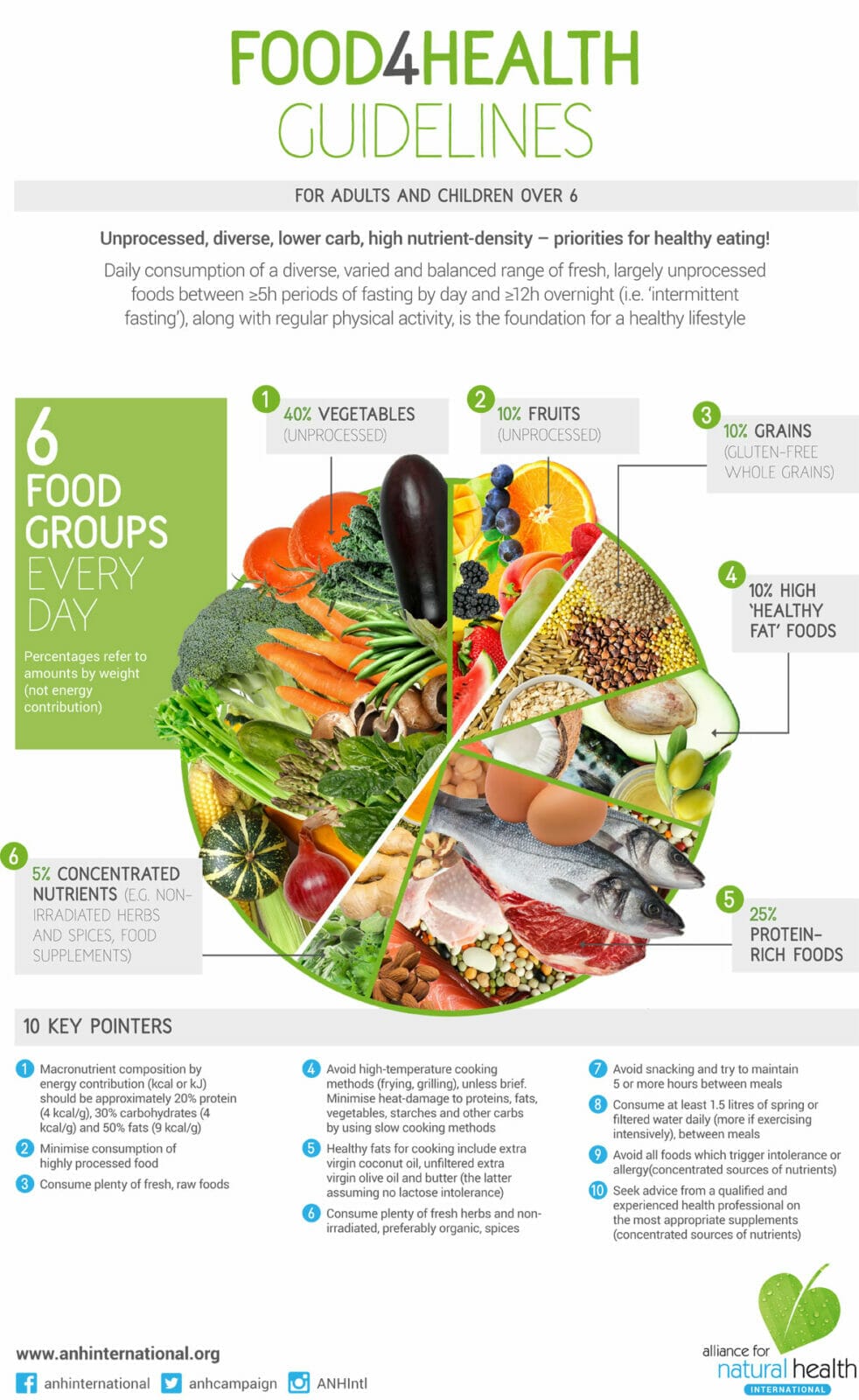4.4 Understanding the Nutritional Content of Your Plate
We’ve discussed at length now the different macronutrient groups and the foods in which they can be found so what proportions should they appear in your daily diet? Of course, everyone has different dietary requirements in terms of energy as well as nutrients, which is why functional nutrition does not apply a “one size fits all” approach.
Please read the following blog which discuss the shortfalls of the Government “Livewell” plate and proposes a new Food4Health plate guidelines delivering the right type and proportions of foods for health.

We also suggest that you now spend some time with the Self Nutrition Data website (http://nutritiondata.self.com) to work out your total daily nutrient intake. It’s an interesting exercise to do but remember be honest so the results truly reflect your dietary intake! There are many other nutrition apps available that enable you to work out dietary composition so you could also investigate these options.
- 1.1 The 21st Century Chronic Disease Epidemic
- 1.2 Risk Factors & The Role of Toxic Burden in Health & Disease
- 1.3 The Changing Health Environment
- 1.4 The Role of Functional Nutrition in Managing Health & Disease
- 1.5 Synthesis of the Science of Functional Nutrition
- 1.6 Module Summary
- 1.7 Recommended Reading & References
- 2.1 Importance of Cell Membrane Structure & Function to Health
- 2.2 Bioenergetics – Cellular Synthesis of Energy
- 2.3 Impact of 21st Century Toxicity on Health
- 2.4 Impact of Toxins on Enzymes & Protein Synthesis
- 2.5 Impact of Toxins on Cell Membranes & Mitochondria Function
- 2.6 The Functional Nutrition Paradigm – Core Clinical Imbalances Underpinning Disease
- 2.7 Transforming Clinical Imbalances into Optimal Function
- 2.8 Module Summary
- 2.9 Recommended Reading & References
- 3.1 Liver & Detoxification
- 3.2 The Gastro-Intestinal Tract
- 3.3 Hormones
- 3.4 Neurotransmitter Systems & Neurological Health
- 3.5 Immune System & Inflammation
- 3.6 Structural Imbalances
- 3.7 Oxidative Stress
- 3.8 Influence of the Mind on Health Outcomes
- 3.9 Joining the Dots Between Clinical Imbalances
- 3.10 Module Summary
- 3.11 Recommended Reading & References
